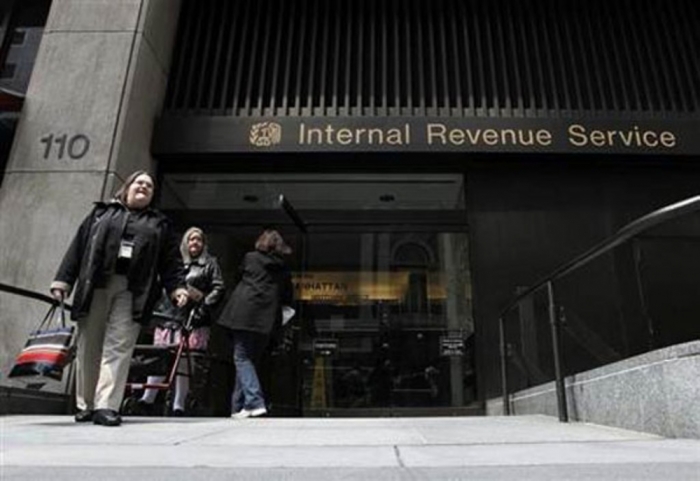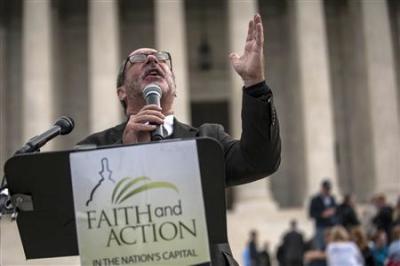Church Leaders Alarmed That IRS Agents Could Pose as Clergy to Access Privileged Information, Enforce Birth Control Mandate

Church leaders are upset after a recent article in The New York Times revealed that the Internal Revenue Service can use undercover agents disguised as members of the clergy as a means to gather privileged information.
Following the Times' report last weekend that over 40 federal agencies use undercover agents disguised as attorneys, doctors, news media and other positions to gain access to privileged information, church leaders are appalled to find out that IRS agents are also allowed to pose as clergy, even though the agency doesn't have a crime-fighting function that warrants such a use of undercover tactics.

In a Tuesday interview with The Christian Post, Director of the Christian Defense Coalition, Rev. Patrick Mahoney, said he thinks it's an "absolute disgrace" that the IRS is allowed use undercover agents disguised as clergy. He added that he couldn't think of any justifiable reasons as to why the agency should be allowed to disguise agents as clergy.
"It is an absolute disgrace that IRS undercover agents can pose as members of the clergy. It is the role of government to protect religious freedom and the first amendment, and not to use it to gather information and spy on American citizens," Mahoney said. "One has to ask why is the IRS using undercover agents to gather information posing as clergy. Why is this even part of their mandate? What does the IRS have to do with this?"
Mahoney and fellow church leaders that he's spoken with in the days since the Times' article was published have expressed concern that the IRS could possibly use undercover investigators disguised as clergy to help enforce the HHS' mandate that requires group and employer health insurance plans to cover all FDA-approved contraceptives and abortion-inducing drugs, thus forcing churches and other faith-based organizations to act against their beliefs.
"The red flag that's raised by all the ministers and faith leaders that I talked to over the last 48 hours is it would seem to have to do with healthcare and the Affordable Care Act, and churches complying with that," Mahoney added. "Is the IRS investigating churches and ministers who've said they cannot, in good faith, comply with Obamacare? These are very serious questions when you have a government agency sending undercover agents in as clergy to gather information and spying on American citizens.
"I cannot think of a more serious issue and I think the IRS needs to explain why they are doing this?" Mahoney said.
The IRS issued a statement to the Times stating that senior officials within the agency "are not aware of any investigations where special agents have posed as attorneys, physicians, members of clergy or members of the press specifically to gain information from a privileged relationship." However, the IRS declined to say whether undercover agents have posed in roles in efforts to gain information that's not considered "privileged."
Although other federal agencies use undercover agents, like the FBI or the Department of Justice, they have to obey strict guidelines that provide tight oversight on their undercover operations. The IRS, however, doesn't have to abide by such guidelines and its undercover operations have far more latitude.
"It makes it even more disturbing when you realize that the IRS has wide latitude, even wider than the Department of Justice," Mahoney asserted.
According to IRS undercover operations guidelines, the permittance of IRS agents to be allowed to go undercover in roles such as clergy is relatively new. In November 2012, a provision to the IRS undercover operations guidelines was made allowing for agents to disguise as clergy and other privileged professionals.
Mahoney claims the 2012 changes to the IRS undercover operations guidelines has President Barack Obama's fingerprints all over it.
"When one considers that the IRS, under President Obama, has had serious charges of using the IRS for political intimidation and harassment on people that the White House considers it opposes, like conservative groups, religious organizations, this just adds another level to those charges and concerns," Mahoney explained. "If the president allowed this to be put in, it does raise even much more serious concerns, particularly churches complying with the Affordable Care Act. One has to seriously look at the possibility that this whole role was put into place to address churches struggling with the HHS mandate and Obamacare."
Mahoney said when the newly elected Republican-majority in Congress takes effect on Jan. 3, he and other clergy members will lobby committees with IRS oversight to act and prevent the agency from being able to go undercover as clergy in the future.



























